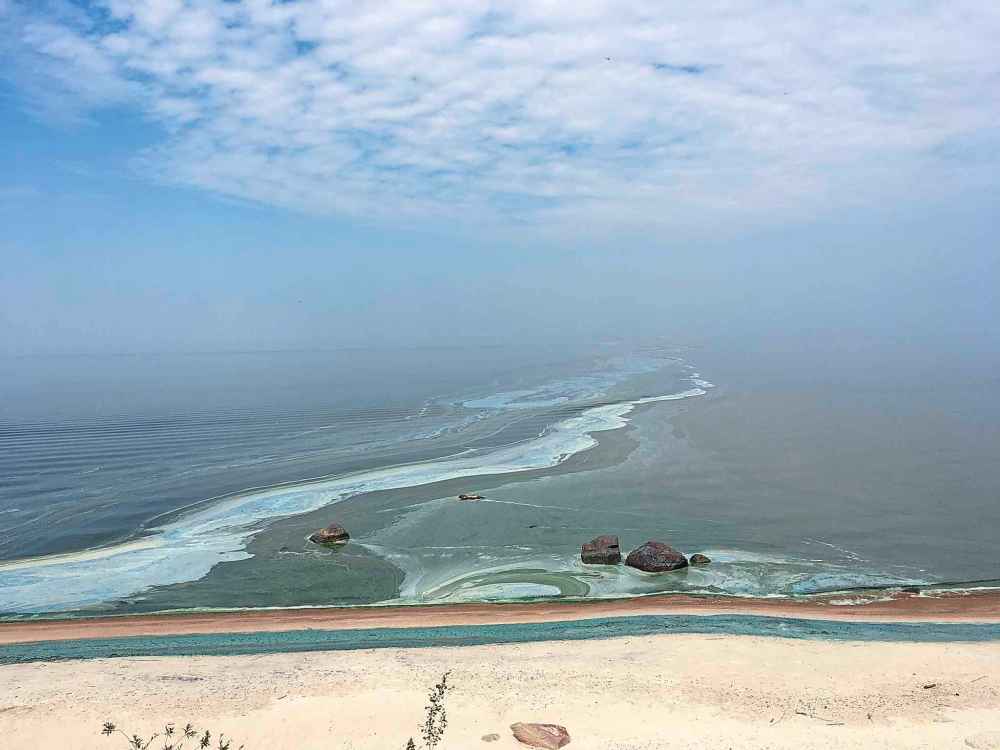New map will help source Lake Winnipeg algae
Advertisement
Read this article for free:
or
Already have an account? Log in here »
To continue reading, please subscribe:
Monthly Digital Subscription
$0 for the first 4 weeks*
- Enjoy unlimited reading on winnipegfreepress.com
- Read the E-Edition, our digital replica newspaper
- Access News Break, our award-winning app
- Play interactive puzzles
*No charge for 4 weeks then price increases to the regular rate of $19.00 plus GST every four weeks. Offer available to new and qualified returning subscribers only. Cancel any time.
Monthly Digital Subscription
$4.75/week*
- Enjoy unlimited reading on winnipegfreepress.com
- Read the E-Edition, our digital replica newspaper
- Access News Break, our award-winning app
- Play interactive puzzles
*Billed as $19 plus GST every four weeks. Cancel any time.
To continue reading, please subscribe:
Add Free Press access to your Brandon Sun subscription for only an additional
$1 for the first 4 weeks*
*Your next subscription payment will increase by $1.00 and you will be charged $16.99 plus GST for four weeks. After four weeks, your payment will increase to $23.99 plus GST every four weeks.
Read unlimited articles for free today:
or
Already have an account? Log in here »
Hey there, time traveller!
This article was published 15/02/2019 (2493 days ago), so information in it may no longer be current.
OTTAWA — Conservation groups are asking Canadians to be part of a new effort to pinpoint the source of Lake Winnipeg’s algae blooms, and to make that data public.
“Each of us as individuals can be part of a larger, collective solution,” said Alexis Kanu, executive director of the Lake Winnipeg Foundation.
Kanu’s group has partnered with Toronto-based Gordon Foundation to assemble and publish data about phosphorus that flows into the lake north of Winnipeg.

“There really is a cultural shift taking place,” said Carolyn DuBois, program director of the Gordon Foundation. “There’s this opportunity for every data point that ever gets collected to have a much bigger impact.”
Lake Winnipeg is at the bottom of a basin spanning the Rockies to near the Great Lakes, meaning it receives phosphorus from wetlands, rivers and lakes across a huge swath of the continent; only about half comes from Manitoba.
Kanu’s group in Winnipeg will test samples collected from multiple provinces and possibly the U.S., and share an updated map of their results through the foundation’s website.
“It’s designed to help us target funding, and target action, in the areas where those resources will have the most impact,” said Kanu.
The Lake Winnipeg Foundation’s community-based monitoring network ballooned to close to 100 sites last year from 12 sites in 2016.
The group received federal funding as part the Liberals’ reboot of programs aimed at tackling algae in Lake Winnipeg. The Harper government had partnered with groups, but an analysis found that $18 million in spending over five years had only dropped the amount of phosphorus entering the lake by less than one per cent.
DuBois said governments, corporations and advocates have gathered data that sometimes overlap.
“It can be very difficult to even know who’s out monitoring,” she said. “We manage water sometimes in jurisdictional silos, and we do have to understand what is happening upstream.”
Both foundations will unveil their project to the groups involved next Tuesday, before a public launch on March 20.
DuBois hopes that the project might spur action to help reduce pollutants, by being the ones who go out and collect the samples needed to form the dataset.
“It’s really important that local groups get together and play an active role in stewarding their water,” she said.
The data will be collected using blockchain technology to verify the source and reliability of the information, and published under an open-licence agreement so that participants keep their right to the data.
The project does not yet include points in the U.S., despite the basin dipping down the Red River into Minnesota and North Dakota.
Last spring, the Manitoba government ended a 16-year court dispute over a North Dakota water-diversion project that connects the Missouri River to the Hudson Bay drainage basin, possibly introducing invasive species and nutrients to Manitoba’s watershed.
The PC government settled with a memorandum that allows Manitoba bureaucrats to keep tabs on the quality of incoming water.
Kanu said Manitobans who’d like to be part of data-collection efforts should reach out to the Lake Winnipeg Foundation, which offers training and equipment and matches them with nearby sites that require sampling.
dylan.robertson@freepress.mb.ca
History
Updated on Friday, February 15, 2019 10:15 AM CST: Corrects attribution of quotes to DuBois and Kanu; corrects titles


